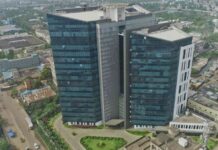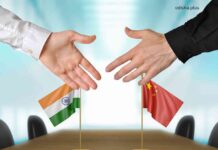Sailendra Pattnayak
Gandhiji often spoke in a manner full of jest that in his lifetime itself India will gain independence. But when the independence came on 15th August 1947, Gandhiji was a heart-broken frail old man of seventy seven years, for it was a blood soaked partitioned independence. Mahatma was utterly crushed with the horrible savagery of his fellow Indians. Fleeing across the newly created boundaries, the biggest exodus in history, the Hindus from Pakistan and the Muslims from India, nearly six lakhs slaughtered in cold blood before could reach their new destination and safety.

During the first three decades of the 20th century among the political leaders and social reformers a few thought it essential to look beyond the horizon of political freedom and work towards creating the ideal atmosphere for the overall growth of social life and the expression of cultural spirit of India. Gandhiji was one of them. With his steadfast adherence to truth and self-discipline, with in ten years of his return from South-Africa in 1915, Gandhi was accepted as the indisputable leader of Congress in its struggle for independence.
For Gandhiji in the villages lived the real India. So, the real work of the leaders was to create the right atmosphere for all the Indians to take a patient and critical look at itself, identify its weakness and use its internal resources to overcome them. Accordingly along with the freedom struggle he gave equal importance to reconstruction of all the aspects village life.
‘Constructive Programme’ as the real path to unity
With the total collapse of the Second Round Table Conference negotiations in November 1931 in London, Gandhi came face to face with the tremendous conflicting forces in Indian politics. His believe became single pointed that the necessary reconciliation between Muslims and Hindus and Dalits is possible only through long and arduous dedication to Constructive Work.

Coming back from England, Gandhi gave himself entirely to planning of the Constructive Programme and aimed that every Indian be involved in it. ‘’Imagine, all the forty crores of people busying themselves with the whole of constructive programme which is designed to build up the nation from the very bottom upward. Can any body dispute the proposition that it must mean complete independence in every sense of the expression?’’
Gandhiji wanted to disassociate himself completely from Congress politics in order to be entirely engaged in Constructive Programme. It came to happening in 1934 with the establishment of All India Village Industries Association (AIVIA). He was more than confident that his dual vision of non-violence and swaraj now aided with the thoroughly planned out Constructive Programme will be surely able to bring about the required harmony not only between Muslims and Hindus but also bridge the gulf with in the Hindu society between the upper caste Hindus and Dalits, and the impending threat of the Dalits being converted to other religions could be averted. And, also the people of the princely states, whose number was more than five hundred, would come forward in more numbers and join Congress.
Zeitgeist or Treachery or Both
But the zeitgeist or the spirit of history had something else in store for Gandhi and India as well. How so ever, in the same breath it should be said here that Gandhi’s expression which was emphatically on truth in day to day life as well as in politics, was being returned back to him on an equal measure with treacherous silence by his nearest followers. The Constructive Programme and later on the Sarvodaya Movement without any doubt could create an army of inspired workers who could reach and positively influence the deep interior rural population including Dalits and Adivasis.

With Independence Congress as the ruling party had immediately changed its course and moving away from Gandhian world conception aimed at a faster way of transforming a subsistence economy into a modern market economy expecting a free flow of cash crops and ready-made goods. It was altogether a different matter that Congress party had benefited politically from the work of the Constructive Programme and Sarvodaya workers.
Although the same effort of turning all the people into ‘economic beings’ remains the sole policy and competition between all the political parties in India until today, but the Gandhian world-view remained influential for quite some time after independence, for instance, Vinoba Bhave’s Bhoodan and Gramadan Movement , even Lokanayak J. P. Narayan’s Total Revolution as majority of its local leaders and workers had come from the Sarvodaya background.
First Shadow of Partition
The Provincial or State Elections were held in the beginning of 1937 in which the Muslim League had fared miserable. Yet the League was prepared to join the Congress-led government . But the conditions stipulated by Congress leaders was becoming more and more audacious for the League. In Uttar Pradesh two cabinet seats was reduced to one by last moment intervention of Nehru.
Gandhi’s writing letters to Neheru and other Congress leaders on the issue did not have any result and the League began to become steadfast in its believe and propaganda that the Congress will never give it its rightful share. Pandel Moon I.C.S. later wrote that, Congress’s failure to cooperate with League in 1937 has been ‘the cause of the creation of Partition.’ In February 1940 Jinnah for the first time began to claim that India was not one nation but two nations, and in March the League’s Pakistan resolution was passed in Lahore.

As war clouds over Europe was becoming darker, at the outset Gandhi had realized that this was a ‘catastrophe without parallel’ that would destroy all the good ofthe humanity for ever. He wrote to the Viceroy Linlithgow in May 1940, offering to go to Germany to plead for peace, though he admitted that this might be only a visionary’s idea. This was the time when Gandhi began to vacillate and was no more steadfast in his resolution to stay away from Congress politics.
The war demanded of Congress a coherent all-India stand in relation to the Raj and the leaders who controlled the Congress Working Committee needed Gandhi’s active presence badly. ‘’For fifty years I acted in the same way and I could not change my spots now.’’ As he had told to C.Rajgopalachary in 1938, Gandhi’s involvement with Congress was always a deeply emotional matter. But same time ‘he was also anxious to know Nehru’s mind before he made any decision.’To the request of Dr. B.C.Roy in October 1939 to take over the leadership of Congress in order to fulfill the need of the hour Gandhi had said that ‘Jawaharlal was the crucial person through whom he could influence India now.’
That Fateful Year 1942
With the coming of 1942, the happenings were of such nature that they would determine not only the destiny of Gandhi but India as well. Since 1937, Viceroy Linlithgow following the line of Prime Minister Churchill had been doing every thing possible to divert away Muslims from the influence of Gandhi. He was also influencing indirectly the Hindu Mahasabha to arouse Hindus against Muslims. All the hope that Jinnah would trace back from his demands for Pakistan was dying away day by day.
In January 1942 at Wardha Gandhi endorsed the Congress Working Committee’s decision against the support of Congress to England in its war efforts. Majority of Congress leaders were becoming impatient and had began to consider that as England was engaged in the war it was the moment to strike it. Under the pressure of America and China finally Churchill agreed to make a move towards Gandhi and the Congress for their support to the war efforts of England.
Sir Stafford Cripps, the leader of House of Commons (a member of Labour Party) came for negotiations with the Indian leaders in March 1942. An immediate national government that would have functioned like a cabinet with the Viceroy as the constitutional head was in the proposal. But Gandhi left for Wardha after a brief meeting with Cripps and other leaders busied themselves bickering over small details. Cripps’ mission ended with a failure and with it Churchill, who wished for it from the beginning was the happiest person. ‘The Congress Working Committee resolution rejecting the Cripps offer contained an implicit acceptance of Pakistan.’’ Writes Rajmohan Gandhiin his ‘Good Boatman’- A Portrait of Gandhi (1995).
On 8 August 1942 Congress under the leadership of Gandhi called for the British to ‘Quit India’. As one of the results of Quit India and the en mass arrest of Congress- men it invited, Jinnah found the opportunity to spread and consolidate the Muslim League in which he had the tacit support of the Viceroy.
Descent of Blood-drenched Darkness
With Jinnah’s rejection of ‘The Rajaji Formula’, in which the furthest limit of concession was reached by C. Rajgopalachari to stop partition, the Muslim League decided to launch ‘Direct Action’ and 16 August was set apart for it. The League Government of Bengal declared 16th August as a public holiday. On that day communal riots broke out on an unprecedented scale in the city of Calcutta and police strictly observed its official holiday .
The riots were soon spreading all over the north India. Bombay from 1st September, Noakhalli in East-Bengal from 10th October, Bihar on 25th October, U.P. in November, finally engulfing Punjab and North-West Provinces from March onwards. Through 1945 and 1946 Gandhiji had stayed mostly in Sevagram Ashram. In the beginning of August 1946 he had spoken in an Ashram prayer meeting of the need of a ‘pure sacrifice’in the midst of senseless violence and probably it is going to be so that this time going out he would never return to Sevagram.
Long ago, in 1940, he had said : ‘’My ahimsa is imperfect and that is why my surroundings are not saturated with ahimsa.’’ He had written in ‘Harijan’ on 7th June 1942: ‘’Time is a merciless enemy, if it is also a merciful friend and healer. I claim to be amongst the oldest lovers of Hindu-Muslim unity and I remain one even today. I have been asking myself why every whole-hearted attempt made by all including myself to reach unity has failed, and failed so completely that I have entirely fallen from grace and am described by some Muslim papers as the greatest enemy of Islam in India.’’

When Gandhiji left Sevagram Ashram intending to reach the killing-fields of Bengal and arrived Sodpur on the 29th of October 1946, a formidable loneliness was his lot and he was in acute pain as all of them who had been with him for many decades and had accepted as their duty to propagate his ideas and ideals in their own subtle ways either had left him or cooperate him no more. Gandhiji toured in riot hit parts of Bengal, both the West and the East, most of the days walking from one village to another with a few companions from 29th October 1946 to 14th May 1947 as Bengal had limped back to peace.
On 14th May the prayer meeting was held at Sodpur. Gandhiji said at the outset that he was leaving for Patna and from there he hoped to go to Delhi and return to Bengal.
Riot once more in Calcutta
Gandhiji arrived Sodpur on 9th August 1947. He was intending to reach Noakhalli before 15th August so that no fresh disturbance occur on the eve of the independence day. But considering the situation in Calcutta the authorities had requested him to postpone his departure. On 10 th August the Congress Ministers of the Government of Bengal came for his advice regarding the celebration of the Independence Day. “Fasting, prayer and dedication to spinning wheel,’’ was Gandhiji’s answer.

On 11th August BBC representatives came with a request for a short message that could be broadcast throughout the world. To their repeated requests Gandhiji wrote back to his secretary on a slip of paper: ‘’I must not yield to the temptation. They should forget that I know English.’’ Gandhiji began the observance of the Independence Day by starting his one fast. C. Rajgopalcharry, the Governor of Bengal paid him a visit and congratulated him on the ‘miracle which he had wrought.’Gandhiji replied that how could he feel satisfied until Hindus and Muslims were not safe in one another’s company ! Without that change of heart, there was likelihood of future deterioration in spite of the present enthusiasm.
Note: On 1st September riots had started once again in central Calcutta. Gandhiji decided to enter upon a ‘fast on to death’ once again until complete sanity returns on to the people of Calcutta.
(The author is a poet, spiritualist and development personnel. Views are personal.)



























